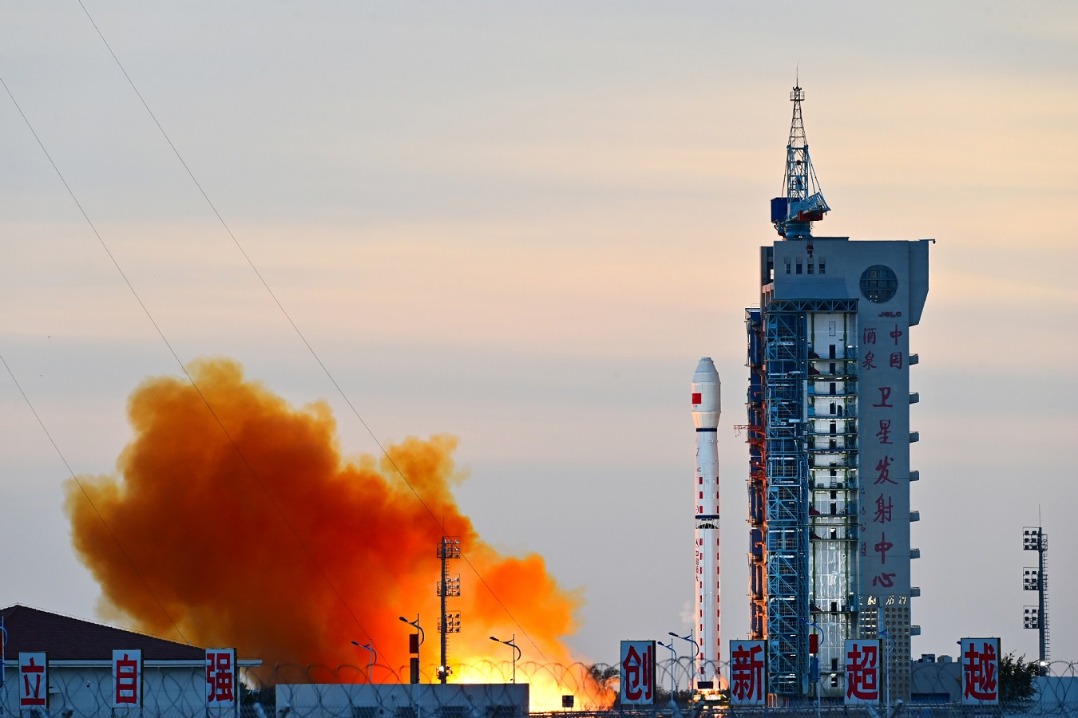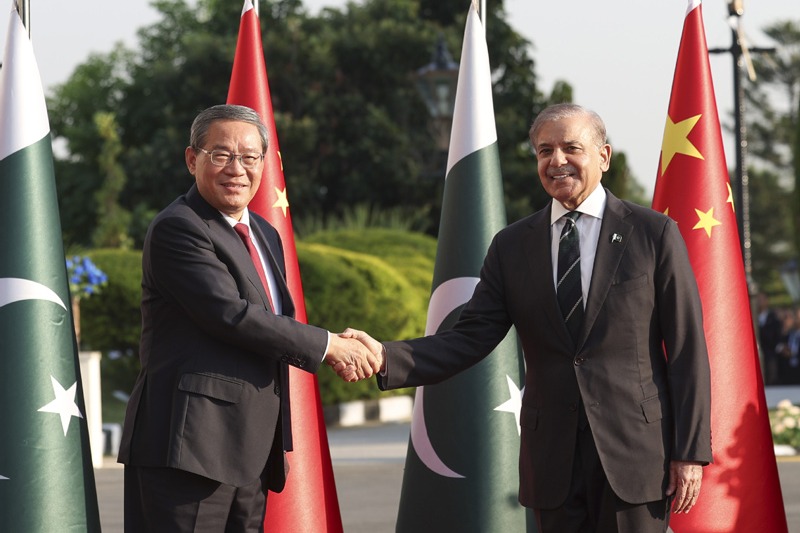Holistic approach on 'Green Deal' stressed at HK conference


The Asia-Pacific Green Deal is about using a holistic approach to address social, economic and environmental issues while cherishing Asian values, green entrepreneur Albert Oung told a conference in Hong Kong on Oct 31.
"The Asia-Pacific Green Deal is somewhat different … because it is based on Asian values where we respect life above any economic gains," said Oung, founder and president of World Green Organisation (WGO), an environmental NGO in the Hong Kong Special Administrative Region.
The Asia-Pacific Green Deal for Business is an initiative of the United Nations Economic and Social Commission for Asia and the Pacific (UN ESCAP) Sustainable Business Network, which aims to encourage businesses in the region to commit to aligning their core operation strategies with environment, social, and governance (ESG) principles.
Speaking at the ESG for Climate Action International Conference 2023, Oung, also co-chairman of ASEAN Economic Club and former chair of the UN ESCAP Sustainable Business Network Green Economy Task Force, said the Asia-Pacific Green Deal aims to help provide integrated solutions to address social, economic, and environmental issues while finding the universal value of doing the right thing.
The conference, held from Oct 30 to 31, was organized by the WGO under the theme "Accelerating Climate Action in Asia and the Pacific for Sustainable Development".
It was held in partnership with the UN ESCAP, Hong Kong Cyberport Management Company, Hong Kong Financial Services Development Council, Hong Kong Exchanges and Clearing, and the IFRS Sustainability Alliance.
Also speaking at the panel on Asia-Pacific Green Deal, Simon Ho, president of The Hang Seng University of Hong Kong, or HSU, said universities can play a vital role in sustainable development in Asia-Pacific through three dimensions, namely education, academic and policy research, as well as public engagement through services.
For instance, Ho said the HSU is among the most active universities when it comes to promoting business ethics and sustainability. "Currently we have over 40 courses related to this subject," he said.
Ho said the HSU also set up the Research Centre for ESG and the Institute for Youth Sustainability Leadership to promote relevant studies and encourage students to find solutions to the most pressing issues in sustainable development.
ESG services' development prospects in Asia-Pacific are promising, said Andy Chan, CEO and co-founder of Think ESG, the sustainability development arm of approved share registrar Union Registrars.
"Development of the ESG services has (shown) … a good trend," said Chan, adding that there is an increasing emphasis on ESG practices and supportive regulatory frameworks to assist companies in integrating sustainability into their business strategies.
Citing a study published in the journal Nature Climate Change, Jackson Tse, executive director of biotech solutions provider C-POLAR Technologies Asia, said climate change has the potential to aggravate 58 percent of infectious diseases.
"The issue is not if the next pandemic will happen, but when it will happen and how we prepare ourselves against it," said Tse.
Tse said his company has been working to create healthier and greener building spaces, reduce disease transmission and biomedical waste, and reduce energy usage in buildings by using integrated devices powered by Internet of Things (IoT) and artificial intelligence.
The panel session was moderated by Alpha Chia, manager of risk advisory at accounting and auditing firm BDO Hong Kong.
- China's AG600 amphibious aircraft starts full-scale fatigue test
- Sixth World Buddhist Forum opens in Ningbo
- Tech sectors draw most overseas grads
- Former senior official of Southwest China's Guizhou arrested
- Xi, Mongolian President Khurelsukh exchange congratulations on 75th anniversary of diplomatic ties
- Shanghai clinic helps kids with low spatial, mathematics abilities




































